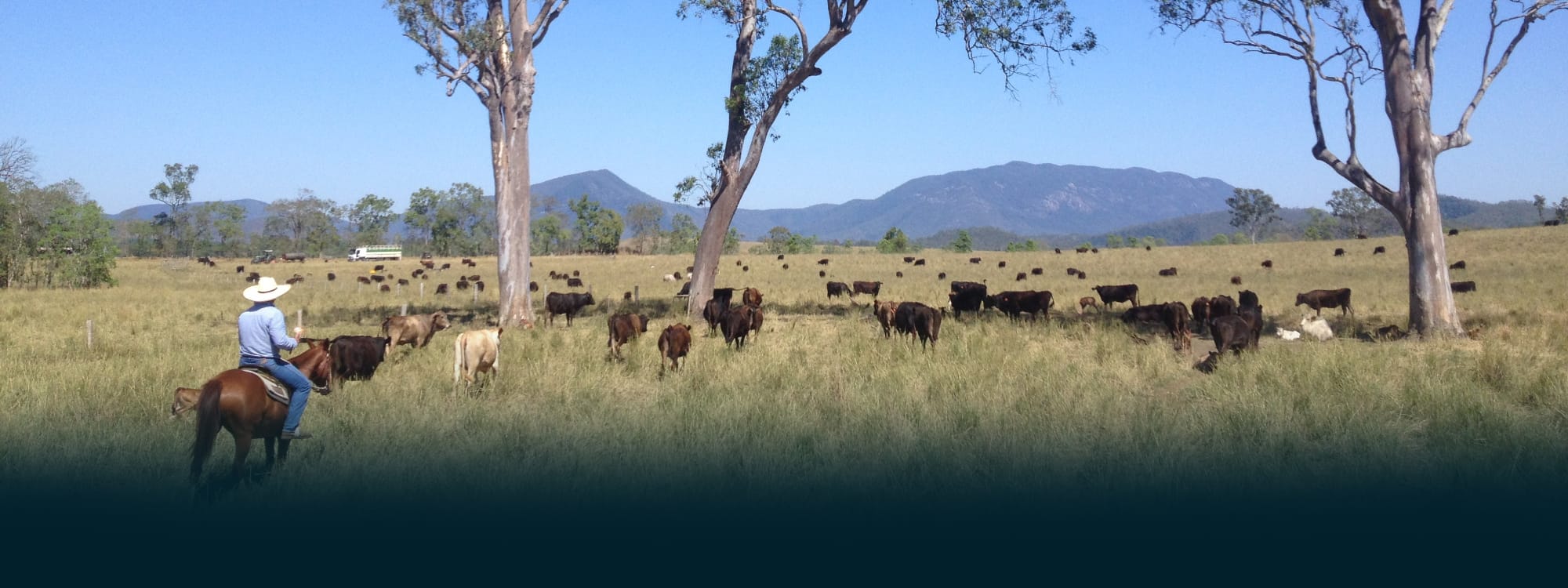The Hamblin Family
Strathdale Wagyu
Blue Mountains, Queensland
Meticulous data analysis is a defining factor in the Hamblins’ success. All property managers have identical web-synchronised data-collection systems. All animals receive a score based on their parents’ and progeny’s performance; informing fast, smart decision-making. The top breeding cows and sires can resultantly be discovered and focused on.
The Hamblin family run their 6,000 wagyu over 46,000 acres in central Queensland and the Darling Downs. They began breeding wagyu in 2000 by artificially inseminating their Brahman and Brangus cows. They have since purchased higher-content wagyu crossbred cows to boost breeder numbers.
The Hamblins’ wagyu enterprise trades under the Strathdale Wagyu and Masterbeef brands. The Hamblins breed fullblood, poll purebred and crossbred wagyu cattle. Their herd is raised on buffel grass pastures in central Queensland. They are lot fed in southern Queensland and marketed as carcase sales in New South Wales.
The Hamblins used shorthorn as a base breed in order to source the large number of cows needed for a sizeable land addition in 2010. Their offspring have been the nucleus for their progeny test selection process for high-performance sires.
The enterprise has largely used artificial insemination, but in 2014 the Hamblins also focused on IVF to increase their herd’s volume of high-performing genetics from superior sires and dams. Their main practice has since been MOET flush programs: their wagyu crossbreds receive 1,000 embryos a year.
Masterbeef won gold medals in the Australian Wagyu Association’s Branded Beef Competition in 2014, 2015 and 2016. It also won five out of six categories with an F1 animal in the 2010 Pacific Carcass Competition.
The newest component of the Hamblins comprehensive data analysis system is Masterbeef and the Masterbeef carcase camera.
The carcase camera allows the objective measurement of carcase traits with high accuracy. This information is then uploaded into Masterbeef; which pulls together carcase data, carcase image, genotype analysis and the animal’s life history into one secure platform. This allows for efficient and effective analysis and decision making. With MSA accreditation and over 88,000 carcase images, this objective carcase analysis is the way of the future.

